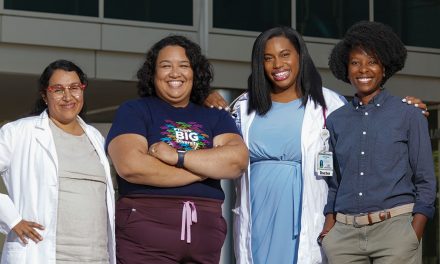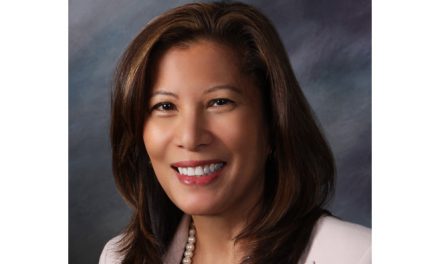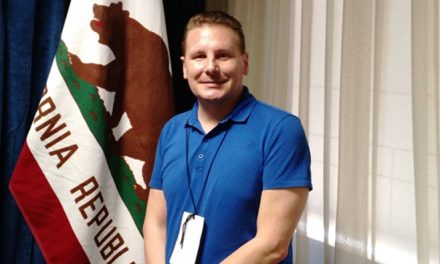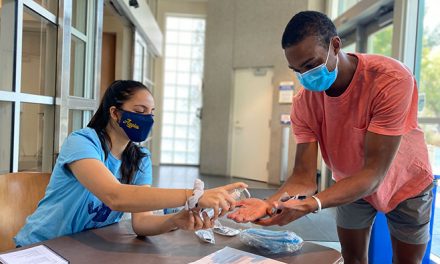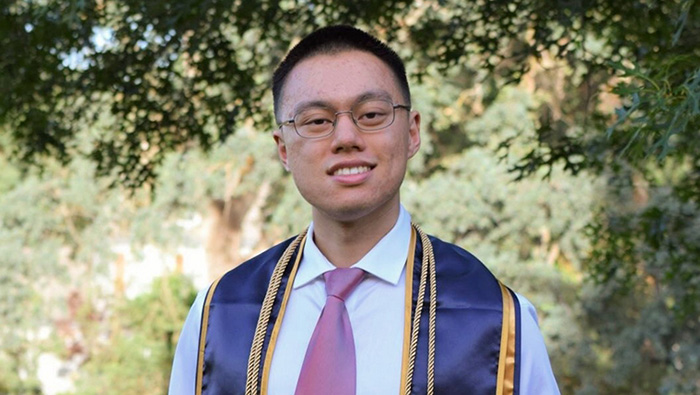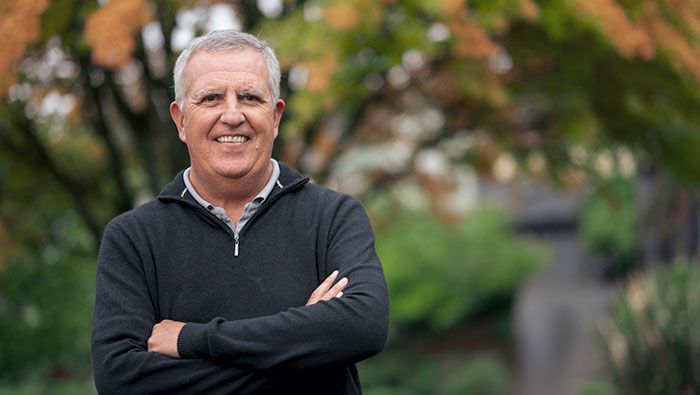
Vet Med Alumnus Aids Pfizer Vaccine Development
When he was a student at the School of Veterinary Medicine, Fred Angulo, D.V.M. ’83, M.P.V.M. ’84, realized his passion for animal care had transformed into a desire to care for all species, including humans.
He never expected that he’d one day work on a life-changing vaccine that would hopefully end the worst pandemic of his lifetime.
Pfizer Inc. recruited Angulo as an epidemiologist after he retired from his 26-year career at the Centers for Disease Control and Prevention. He has been working for Pfizer for three years now, supporting the company as an epidemiologist for vaccine development — including the COVID-19 vaccine. Before the pandemic, Angulo was working on vaccines for Clostridium difficile infections (C. diff) and Lyme disease, among other projects.
“I helped in forecasting where the next surge in COVID cases would occur and determining the best place to do clinical trials,” said Angulo. “We focused all of our efforts and resources on developing the vaccine as quickly as possible because we had an important role to help solve this problem.”
Angulo explained that a vaccine typically takes around eight years to develop; however, Pfizer invested millions of dollars independently to give scientists full control on the development and expedite the process.
Rather than wait for each step to be finalized and approved, everything was done in parallel — even at the risk of losing money. For example, while the vaccine was being finalized, production facilities were already being built and Pfizer was figuring out distribution and transportation.
“We must stick to science; only through science can we beat this pandemic,” Angulo said. “That has been our unofficial motto at Pfizer throughout this past year, and I truly believe that we can overcome COVID-19 if we come together and trust that science will win.”
“We must stick to science; only through science can we beat this pandemic.”
Working in public health, giving back
Angulo’s interest in animals and science started at a young age. His mother was born and raised on a cattle ranch in Northern California, where Angulo would work during the summers, and his father is a microbiologist. He knew he wanted to follow in their footsteps.
“When I started veterinary school, there were so many opportunities I couldn’t predict where exactly I would end up,” Angulo said. “But UC Davis gave me the tools and a strong foundation to build upon my interests, and it opened many doors throughout my career.” Today, Angulo gives back to UC Davis as a donor to the School of Veterinary Medicine.
Public health became one of Angulo’s main interests in veterinary school after meeting the late Dr. Calvin Schwabe. Known as the father of veterinary epidemiology, Schwabe helped strengthen UC Davis’ commitment to One Health by ensuring that future veterinarians integrate human, animal and ecosystem protection into their professional work.
“After taking several of Dr. Schwabe’s classes, I was intrigued by his work, connecting human medicine and veterinary medicine, and decided to go into the public health field,” Angulo said.
Schwabe was instrumental in establishing an additional program at the veterinary school that offered a degree called Master of Preventive Veterinary Medicine. Angulo took the opportunity to simultaneously earn his master’s along with his veterinary degree at UC Davis.
Angulo said working on the mastitis control program helped him learn more about disease control, microbiology and large animal medicine.
“Working with the mastitis group during the weekends was a great hands-on experience and helped pay for part of my education,” Angulo said. “It prepared me for the Army where I cared for small animals and managed public health activities at the bases in Europe.”
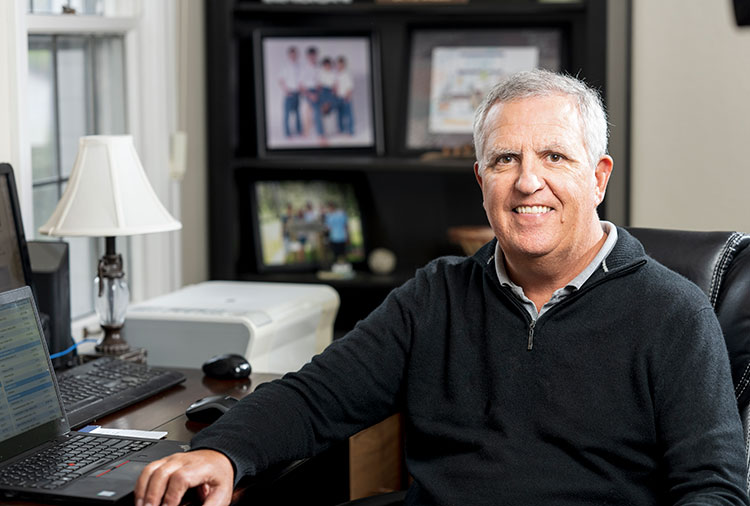
Fred Angulo
A veterinarian’s role during outbreaks
Angulo spent six years in the Army after graduating. He later earned a Ph.D. in public health at UCLA and spent most of his career at the CDC, where he worked on several national and international outbreaks.
“I initially joined the CDC on a two-year fellowship called Epidemic Intelligence Service; we worked on disease outbreaks around the world and tried to find ways to prevent future outbreaks,” Angulo said.
“I then worked in the foodborne and diarrheal diseases branch on national surveillance of infections caused by salmonella, E. coli and waterborne diseases, which helped the U.S. Department of Agriculture monitor the impact of new approaches to inspecting food in the U.S.”
Angulo worked on major outbreaks including the 2010 cholera outbreak in Haiti and the 2014 Ebola outbreak in West Africa. Angulo said disease experts have been planning for every scenario to prepare for the next major outbreak.
“There’s a scientific roadmap to respond to these kinds of disease outbreaks, and there are things we can do now to protect ourselves,” Angulo said. “As veterinarians, we have a vital role to play in preparation for the next pandemic.”
Read more
In Greater Focus magazine spotlights UC Davis experts who are using their talents, drive and interdisciplinary expertise to build a better world.

